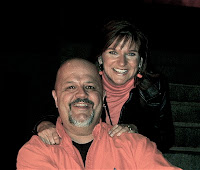whom would jesus torture?
I’ve got something I’ve been carrying around for a few days I have to get on the page.
Last Wednesday, the NPR program Here & Now aired a segment on a congressional hearing on our government’s practice of “extraordinary rendition,” which sounds like more like a critique for a performance on American Idol than it does something that deserves congressional attention. As cool as it sounds, it’s not fun and games at all. Rendition is the practice of our government finding ways to hand over political prisoners to governments that will torture them for us, since our constitution forbids us from treating people that way. Our government has sent people to Syria and Egypt, among other places, just because we suspect they know something – not because we have anything more tangible than a hunch – and let those governments beat the living daylights out of these people.
If that doesn’t send a chill up your spine, wait until you hear what Michael Sawyer, a former CIA officer who helped create parts of the program, had to say in the hearing. When he was asked about the fact that many innocent people had been rendered, he said, “No one really cares what happens to these people. Let me rephrase that: I don’t care what happens to them.”
William Delahunt, one of our Massachusetts Congressmen, asked, “What about those who are ultimately proved innocent, even after being tortured.”
“Well, mistakes are made.”
“So they’re mistakes,” said Delahunt.
They’re not Americans; I really don’t care.” Then Sawyer laughed.
The congressman who had invited Sawyer defended his stance by saying something about our living in a time of war and having to do these things. He’s got it backwards: we are at war because we do these things. If our fear and anger has reduced us to people who don’t care about anyone’s life but our own, then we are not so easily distinguishable from the terrorists we are so determined to exterminate. Yes, I know we live in a dangerous world and there are people who would like to do us harm. I saw the Twin Towers fall just like Michael Sawyer did. But I refuse to accept his definition of reality. Torture will never sow the seeds of peace.
Yesterday, I found this new poster on the Amnesty International web site:
I like the sentiment, yet I have to say believing in America isn’t going to change much. These are days that call for an extraordinary rendition of our faith, a brazen articulation and incarnation of Jesus’ words:
“Love your enemies; be good to those who hate you.”
“Love your neighbor as you love yourself.”
“Love everyone as I have loved you.”
Do we think Jesus was being hyperbolic or sentimental or unrealistic? Do we assume somewhere along the line the caveats he added at the end of those imperatives were somehow lost in translation? (“Love your enemies; be good to those who hate you – unless, of course, you can find someone else to torture them.”) At the heart of our incarnational theology is the reality that all of humanity is connected. When people die in Darfur, we die. When our government arranges for people to be tortured, we are tortured. Jesus pointed that out as well:
“When you do it unto the least of these, you do it unto me.”
Torture is wrong. Rounding up people on the basis of fear and suspicion and flying them halfway around the world to throw them in prison without any rights is also wrong. Justifying any of it with the idea of making the world safer for us is both wrong and misguided. Jesus never called us to be safe. He didn’t call us to take care of ourselves first. He did call us to love the world, over and over again.
I don’t know if Michael Sawyer is a Christian, so I can’t speak to the ethic that guides him. I also don’t expect our government to be Christian in its actions because it’s not Christian. I do pray that American Christians will grow in their courage and compassion to be peacemakers instead of seekers of safety. The people being tortured are someone’s father or brother or son, someone’s wife or mother or daughter. Before they are suspects, or enemy combatants, or even terrorists they are human beings just like me. Whether they choose to be a neighbor or an enemy, they are people whom Jesus called me to love.
I can’t condone their torture under any circumstance.
No, that’s not an easy statement to live with. Our world is dangerous and there are people who would like to do damage to as many Americans as possible. That’s the life they have chosen. I have to decide whether my choices will be determined by my fear of being hurt by them or by my commitment to follow Jesus’ life and teaching.
You would think the choice was obvious.
Peace,
Milton
















